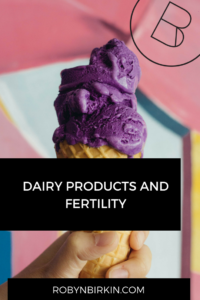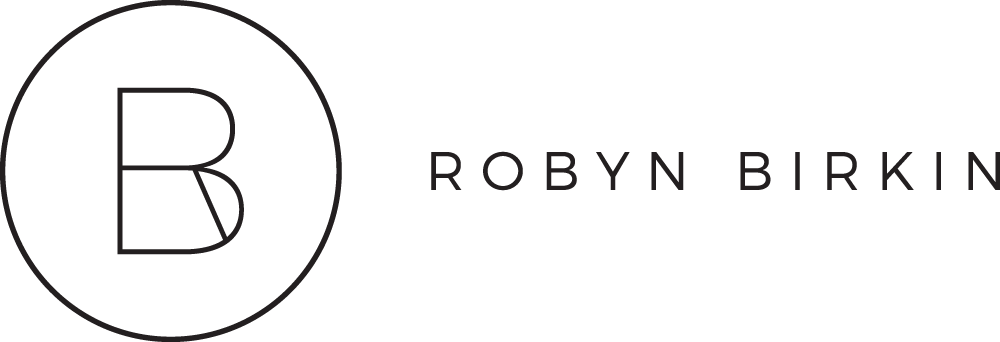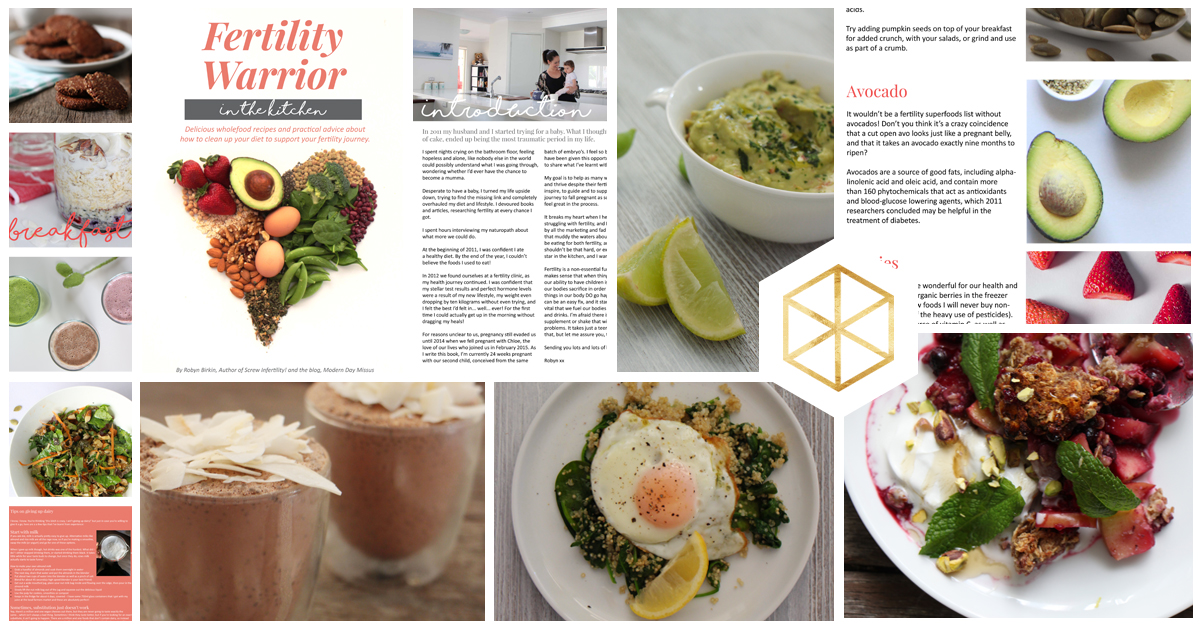Today is all about dairy products and fertility, and more specifically how dairy products could be harming your fertility.
If this were medieval times, I feel like you’d all be now looking at me going, “Boo! Hiss! Throw her a rotten tomato,” because you’re all probably thinking things like,
“How could I ever give up dairy? I don’t know how I could ever give up dairy.”
“I’m addicted to cheese. I love my cheese.”
“What am I going to put in my coffee every morning if I don’t put milk?”
Let me just tell you, I hear you. Not only do I hear you, I was you.
Those are exactly the thoughts that ran through my mind when my naturopath first said to me that I should go on an elimination diet in order to start prepping my body for baby making. An elimination diet is where you cut out certain foods in totality. You cut them out for a minimum of three weeks, and then very slowly, one by one, introduce them back into your diet again. Ideally, you want it to be at least three months though.
What you’ll do is eliminate all of these foods, and then you will introduce back, for example, caffeine, if you feel you need it, on one day, and then see how your body reacts and analyse how your body feels. Then if your body is fine, you say, “Okay, my body is tolerating that.” If your body is not fine, you say, “Okay, well, obviously, there is a problem with my body having caffeine,” and you then cut that back out again. Then wait a few days, then introduce another item and see how your body responds, and so on and so forth.
My naturopath told me that I should cut out all of these things to help me remove the bugs from my belly, release the toxins, get my digestive system repaired and functioning really well. She said I needed to cut out these things for three months, and those things were caffeine, sugar, yeast, gluten, dairy, artificial sweeteners, alcohol, peanuts, fried food, soys, excess salt, and prepackaged food.
“Dairy, though?” I was like, “Yeah, I can do all of that, except dairy, no way.”
For those of you who have been around me for long enough, you will know that I’m a vegetarian, and I was like, “I eat dairy for breakfast, lunch, and dinner! What am I going to eat if I can’t eat cheese?”
But, after months and months of not falling pregnant, and reading more and more materials, I was absolutely convinced in myself that I just needed to give up dairy, this needed to happen, and so I cut out, I went on the elimination diet, essentially, again, and this time was really, really strict about it. I cut out both gluten and dairy for a long time.
I firmly believe in bio-individuality in that our bodies all respond to different things, so what works for me might not work for you, but certainly at that time I guess you could say I had a vegan diet. When I gave up dairy. I lost five kilos pretty much straight away without doing anything.
You know that feeling when you wake up in the morning, and you’re like, “My God, I just want another hour?” When I gave up dairy, it was like I woke up like they do in the movies, and I just open my eyes and think, “Okay, it’s morning. Let’s get up and roll around. Let’s do this.”
I just felt lighter, generally just so much better when I gave up dairy. I felt great, and it certainly wasn’t as hard as I thought that it was going to be.
What are dairy products?
Dairy products are any products that come from the milk of a cow.
This includes:
- Cheese
- Milk
- Sour Cream
- Cream
- Butter
- Yoghurt
And processed foods that include dairy such as:
- Chocolate
- Cakes
- Pizza’s
- Pasta’s
If you look at the ingredients labels of a lot of foods, milk is classed as an allergen, so you can often quite readily identify what products have milk in, and you’ll often be quite surprised at how many products contain milk.
How are dairy products impairing your fertility?
Why would you ever want to give up that sweet, sweet thing called cheese?
Negative Energy
Well, when we’re talking about fertility, there are many, many reasons why we need to give it up. I don’t want to go into any kind of vegan propaganda in this, because that is absolutely not what this is about, not about what this podcast is about, but if you look further for yourselves into dairy farming, you will see that the process is incredibly cruel to cows. You certainly don’t want to be loading your body, from my perspective, with any kind of negative emotions that might have been passed through the product into you.
Harmful Toxins
The milk that you receive is often loaded with lots of hormones and antibiotics. When we’re trying for a baby, we really want to minimise any of the environmental toxins that we’re exposed to as possible, and more so, if we fall pregnant, we don’t want to pass that on to our baby through the placenta. There’s studies that have come out that have shown that babies, when they are born, are already born with 200 chemicals in their body that has been passed down to them from the mother. That’s an insane figure.
Dairy is highly acidic
Dairy is highly acidic in our body. When we consume dairy, in order to counteract this acidity our body starts leaching calcium and other nutrients from our bones, so even though we’ve been brought up thinking that dairy is what gives us calcium, it does, it contains a lot of calcium, but it actually leaves us deficient in calcium, because the amount of calcium our body needs to counteract the acidity is more than what we receive in the form of this dairy.
I would urge you to have a look at the rates of osteoporosis in countries all around the world. There are many countries who don’t eat any dairy at all, particularly Asian countries and a lot of African countries, and have a look at their levels of osteoporosis, and you’ll often find that that their rates of osteoporosis (and hip fractures) are much, much lower than ours, and have a look at the countries that have the highest rates of osteoporosis and associate that with their dairy intake and go from there.
Estrogen
Another thing is that about 60 to 70% of the estrogen that people consume from external sources is from dairy. When you are talking about fertility, you don’t want anybody else’s hormones muddying the waters of your hormones. You want your body to be producing things in as natural a capacity as it can rather than absorbing things like estrogen from other sources. If you are into Chinese traditional medicine, and we all, or many of us are believers in acupuncture when it comes to fertility, they believe that dairy products can cause damp which is inflammation in our body, and that’s sort of similar to dairy products being acidic in our body. We want to keep our bodies, where possible, in a mildly alkaline state, which comes from eating things like leafy greens and lots of vegetables and fruits.
Galactose
Another reason is that a sugar called in milk called galactose has been shown to exist in high quantities of the bodies of women with infertility, and high rates of milk consumption have been linked with decreased fertility. Many of you out there may be familiar with The Nurses’ Study. This is one of the largest studies ever done on sort of nutrition and things like that, and they actually recommended in that study that women do eat some dairy, but one of the problems with that study, there’s many problems is that they only looked at whether women who weren’t ovulating then started to ovulate so it was quite limiting.
High Protein Diets and Uterine Lining
Other studies have also shown that too much milk or protein can cause issues with uterine lining and implantation.
If you have followed me for a while, you will know that I am not a fan of ketogenic and low-carb diets for fertility, because I do believe that too much protein can be really harmful for us, and certainly some studies have shown that that can have an impact on our uterine lining and our implantation.
A bit of a back note is that I was myself once on a ketogenic diet, and I really don’t feel that it ever agreed with my body in the right way. In some ways, it felt like it did. I lost a little bit of weight, but not that much weight. I felt a bit lighter, but not that much lighter, and it can certainly have negative long term implications for our health too.
Dairy creates an insulin spike
But then if we have a look at people who might have something an insulin resistance, which is often associated with PCOS, dairy products often cause a high glycemic load in our body, so people with PCOS are often recommended to go on a low GI diet.
The trouble with the glycemic index is that it only measures the carbohydrates in a product, whereas if you have a look at the insulin index, that actually has a look at how that raises your blood sugar levels. Studies have shown that a tub of yogurt can cause a higher blood sugar spike than two pieces of white bread.
Dairy Intolerance
Now, the very last reason why I believe that dairy could be harming your fertility is because it’s estimated that about 75% of the world’s population have an intolerance to dairy. This is where we start talking about inflammation again, and intolerances to foods can create inflammation in our gut.
So much research is coming out about our guts now and that the health of our gut is one of the most important aspects of our health.
Something like 70 to 80% of our immune system resides in our gut.
They call it the second brain, because there is so much going on there, and when your gut is out of whack, it can completely throw out your hormones. It can stop you from absorbing nutrients, so any hard work that you’re doing, eating all of these multivitamins and keeping a really good diet could be for nothing.
Women with food intolerances have also been shown to be more likely to miscarry.
How to give up dairy
Be prepared
One thing that really helped me was making sure that I had three to four go-to options for breakfast, lunch, dinner, and snacks, that I had tried before, wanted to eat and could easily make. I have a bunch of options in my ebook, Fertility Warrior in the Kitchen.
Start making nut milk
Milk is one of the number one easiest things to give up, I promise.
When giving up hot drinks, I started drinking my coffee (if I had any because obviously #caffiene) black, with the occasional soy milk if I was going out, and default to almond milk for nearly everything else, such as smoothies and porridge.
When you make your own almond milk, it comes out so perfectly white and fluffy, it’s amazing. Basically, what I do is I’ll grab a handful of almonds and soak them overnight in water, the next day drain that water and put them in the blender with some fresh filtered water and a pinch of salt, and then blend them in a high-speed blender, and then put them in a nut milk bag and strain it.
Try Cashew Cheese
Vegan, not vegan, dairy, no dairy, whatever diet you’re on, you need to try cashew cream. Basically it’s just cashews blended with water, and you can always mix in sometimes macadamias if you want it to be a bit richer. You can mix in salt. You can mix in all sorts of other things, but depending on how much water you add, it can be like a creamy paste, so like a cheese spread on crackers and things like that, or if you add quite a lot of water, then it can be like a creamy pasta sauce.
Try Nutritional Yeast
The name is misleading, trust me. It isn’t actually an active yeast at all, and it looks just like little yellow flakes…. of nutty, cheesy goodness. Nutritional yeast is actually jam packed with nutrition and it adds a slightly nutty, cheesy flavour to sauces and all sorts. It is definitely worth keeping in your pantry.
Go Ethnic
As I mentioned before when we were talking about osteoporosis, there are so many cultures in the world that don’t eat any dairy at all. Instead of going to an Italian restaurant, look the other way and try and find something a little bit different, such as Japanese or Vietnamese cuisine.
Sometimes substitution doesn’t work – just try another dish
Yes, there are so many vegan cheeses out there, but they’re never going to taste exactly the same as normal cheese. A coffee with almond milk is never going to taste the same as a coffee with cow’s milk, so you need to understand that substitution is never always going to pan out exactly the same way, but it’s not always a bad thing. You don’t have to always have an exact substitute. You don’t always have to find a pizza that uses vegetarian cheese. How about just don’t have pizza and have a stir fry instead? Instead of looking at 1,001 ways to have a dairy-free croissant with cheese for breakfast, why don’t you just have a smoothie, or some poached eggs, or a fruit salad or something like that?
Lastly, it doesn’t have to be forever
You may feel so great that you aren’t interested in eating dairy again, but please don’t feel like you need to give it up for your entire lifetime, and don’t feel obliged to live by labels either, especially once your baby-making is done. Labels set us up for failure. That camembert that you’ve always loved, will still be there once your fertility journey is over, I promise. You just need to put your back into it, and bust your gut a little to get some sticky baby dust!
More fertility food goodness
Did you know that I have a book, Fertility Warrior in the Kitchen, which discusses just this, and has a number of recipes to try?
If you’re in a bit of a diet rut and looking to make changes but don’t know where to start, this is a great place. It’s 92 pages jam-packed with information about food and fertility, and gives you plenty of options for all meals, as well as hints and tips for implementing dietary changes.
Find out more about Fertility Warrior in the Kitchen here.

Listen here.

